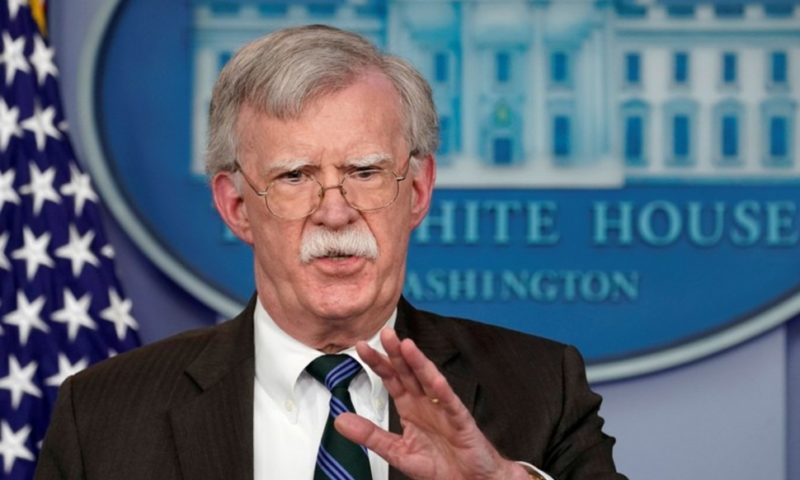WASHINGTON – U.S. President Donald Trump’s national security adviser John Bolton raised U.S. concerns about the use of Chinese telecommunications equipment in sensitive sectors during a weekend meeting with Israeli Prime Minister Benjamin Netanyahu, a U.S. official said on Wednesday.
“We are all concerned about theft of intellectual property and Chinese telecoms companies that are being used by China for intelligence-gathering purposes,” said a senior administration official who was briefed on the talks.
The Trump administration has taken a series of steps aimed at curbing market penetration by Huawei Technologies Cos Ltd [HWT.UL] and ZTE Corp, two of China’s biggest network equipment makers. Both companies have denied that their products are used to spy.
The administration does not want any obstacles to being able to share sensitive information with the Israelis, the senior official told reporters ahead of the meeting, referring to the concerns about Chinese technology and investment at the port of Haifa.
“We specifically put it on the agenda,” the official said.
The Netanyahu government, frustrated by labor disputes that had disrupted Israel’s trade arteries, gave the green light in 2013 for China’s Shanghai International Port Group to operate a private port in Haifa – a major berth for the U.S. Sixth Fleet.
In a possible sign of U.S. displeasure at the Chinese involvement in Haifa, one of the Sixth Fleet’s warships in October docked in Israel’s second-tier Mediterranean port of Ashdod, the fleet’s first such visit in almost 20 years.
In December 2016 Huawei acquired Israel’s HexaTier, whose technology secures databases in the cloud, for $42 million. This followed a visit to Israel by the Chinese technology giant’s CEO. That same month it also acquired IT research firm Toga Networks for an undisclosed amount.
According to Israeli media, ZTE has shown interest in Israel’s tech sector since sending a senior delegation to the country in 2013.
Israel’s Haaretz newspaper reported in 2016 that Israel has an undeclared policy of not using Huwaei or ZTE technologies, out of concern about possible security breaches.

